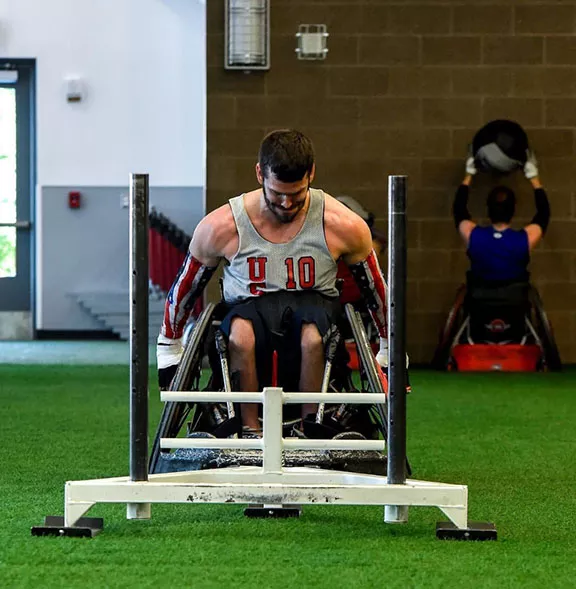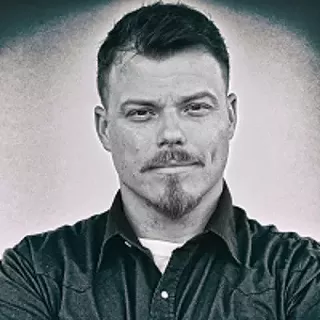But easy isn't in the vocabulary of Marana resident Josh Wheeler, who plays for the United States National Wheelchair Rugby Team. The 39-year-old is headed to the 2020 Paralympic Games in Tokyo this summer.
"It's very physical and there's a lot of strategy involved," he said about the sport. "If you don't have the physical and mental side, you're not going to do that great."
It goes without saying that Josh is no stranger to pain. He recently got his fingernail ripped off while training with his team at the U.S. Olympic and Paralympic Training Center in Colorado Springs. Instead of "taking five", he bandaged his finger and got back to training.
"It's all a part of the game," he said. "Everybody gets a few injuries occasionally. I've had broken bones playing. I've cut my fingers down to the bone playing. I've had contacts ripped out. I've had fun playing, that's for sure."
Josh said the team follows a rigorous training schedule while at the center in Colorado Springs, consisting of six to seven hours of on-court training every day. In addition, they have to follow a strength training regimen and meet daily with sports nutritionists and sports psychologists.
It's no picnic when Josh trains back home in Marana either.
"I'm doing something six days a week, training in the gym or getting cardio in my chair on the Rillito path," he said. "I try to get quite a few miles in several times a week."
Josh and his wife, Stephanie, recently moved to Marana from near the university, where Wheeler also plays for the University of Arizona Wildcats Wheelchair Rugby team. The Wildcats won back to back United States Quad Rugby National Championships in 2018 and 2019. While they enjoyed living in Tucson, both said Marana feels more like home these days.
"Marana is a great place to raise a family," said Stephanie, who grew up in Marana. "It has a small town, family oriented community and everyone has everyone's backs. That's what I wanted to come back to."
Stephanie said she's excited to be traveling to Tokyo with Josh's family this August for the 2020 Paralympic Games. She describes herself as a "family oriented person" who is interested in experiencing Japan's environmentally friendly culture.
"They've made all the gold, silver and bronze medals mostly out of recycled pieces of cell phones." Stephanie said. "(Japan is) finding all these really amazing environmen tally sustainable ways to invite hundreds of thousands of tourists to their country and I'm excited to walk around to see what they're doing."
Josh started playing wheelchair rugby not long after a car accident damaged his spine in 2006. A player from the Utah Wheelchair Rugby team invited him to come check out a practice after a chance meeting at Josh's former job.
"So I went to a practice and I fell in love with it," he said. "As I kept playing, I kept getting better and better."
By 2009, Josh felt he was ready to tryout for the USA Wheelchair Team. However, Josh said he became overwhelmed after realizing the other players "were on another level".
"They were so much better than I was," he said. "I loved being there but I was not going to make the team on my first tryout."
Persistence and a desire to make the national team paid off when Josh was offered an alternate-player position another USA Wheelchair Rugby player chose to retire. Since 2013, he has been one of the team's key players, Josh said. But he still has to qualify for the national team each year.
"They select the 16 players most likely to bring home the gold," he said. "Sometimes that might mean leaving a great player at home just because it's not a perfect fit for the team."
But you don't need to play at an elite level to benefit from the sport, Josh said.
"It takes you from going through an accident and being in a wheelchair to having friends who are also doing that," he said. "You can learn so many things about how to make your life better and how to do things you couldn't before."








